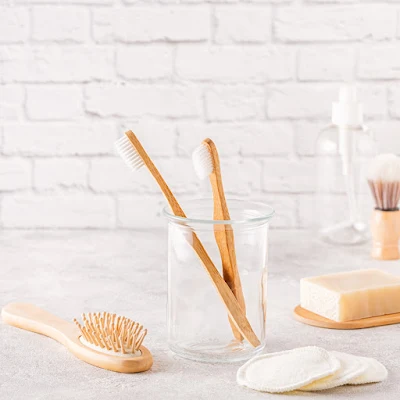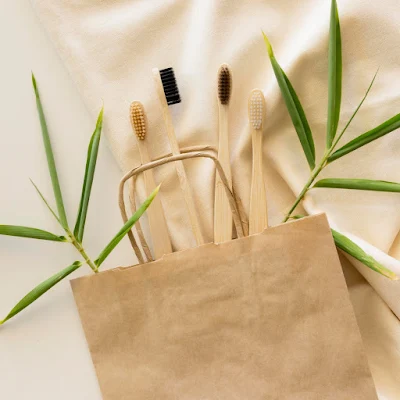The Inner Conflict With Zero Waste Toothbrushes
It’s been months since you switched to a bamboo toothbrush. You made the switch for the sake of the planet. But that nagging voice in the back of your mind still wants to know whether it was the right choice or not.
This is not an anti-environment issue. It is that gap between doing good and compromises that need to be made that are not talked about, frankly, anywhere.
The Moisture Problem No One Talks About
Bamboo toothbrushes get moldy if they are not taken care of. Leave them in a humid bathroom without proper airflow, and they will get moldy in less than 10 days.
Bamboo toothbrushes require a caregiver. A person succeeds in drenching them in water, then the toothbrush is not cared for, ensuring airflow, drying time, and storage, as a toothbrush caretaker. For basic dental hygiene, that is way too much consideration.
People end up buying multiple toothbrushes so that they can swap them out for different rotations, which is counterproductive in purpose quite quickly.
The Cleaning Effectiveness Question
Admit it, you were probably concerned whether your teeth were actually getting clean during the first few weeks. The bristles vary too. Some are overly soft while others are too stiff. The handle thickness changes how you angle and grip the brush.
Regardless, most bamboo toothbrushes continue to use nylon bristles. The environmental perks are on the handle rather than the portion that scrubbs your teeth clean. Brushing your teeth with properly functional 100% biodegradable bristles is nearly impossible, especially at reasonable prices.
Users do report feeling balance to the cleaning. We all know balance isn’t the most welcomed term when someone decides to spend more on something.
Price Reality Check
For families, this adds up rapidly. $4-16 for plastic alternatives while the bamboo options jump up to $6-28.
A basic plastic toothbrush is still far more cost effective at 2-4 times less than its bamboo counterpart.
Proposed frameworks also come at a cost of their own, like needing to replace bamboo toothbrushes more often due to moisture damage or sprialing bristle wear.
The scenario here means spending more money while needing serving high volumes of maintenance work.
Access and Selection Issues
Regular stores rarely carry good zero waste toothbrushes. Specialty shops are a better bet, but often still require ordering and planning ahead. And when traveling, quick replacements revert back to plastic.
Compared to plastic toothbrushes, the variety is much more sparse. Specialty features, different head sizes, and bristle types are more common among bamboo versions.
The Environmental Guilt Complex
Even with bamboo toothbrushes, their shortcomings are widely known. Transportation footprint, packaging materials, and manufacturing as a whole contribute to environmental impacts. Some companies use greenwashing tactics by claiming to be environmentally friendly while still using significant plastic components.
Attempting to do better while questioning if it's actually better creates a unique mental space.
Why People Keep Using Them Anyway
Regardless of the reasoning behind the mental space, people still choose zero waste toothbrushes. The alternative feels worse—plastic toothbrushes that take centuries to decompose. Once you learn that, it’s hard to ignore.
The compromise here is accepting imperfection while moving in a better direction. It’s not about a perfect answer; it’s finding a choice that aligns with your values, even if it's inconvenient.
The pause you take isn’t necessarily a wrong one. It’s rational. Zero waste toothbrushes, unlike their plastic counterparts, cost more money, require greater effort, and demand more lifestyle changes. Accepting these compromises does not make you a worse environmentalist.
Why It Feels Like A Compromise To Use While Using A Zero Waste Toothbrush
Zero waste toothbrushes highlight the compromise between being a responsible environmentalist and the convenience of daily life. Concern over usability, effectiveness of cleaning, and durability often keep users masked to the cost and upkeep features.
Moisture sensitivity of bamboo handles, lack of availability, higher prices, along with questions regarding their environmental benefits create real pause. Most of us don’t stop using them not because they are flawless, but because the substitute of adding to plastic waste feels worse.
The best approach is understanding that making sustainable choices often requires balance, rather than hoping for straightforward substitutions for traditional goods.


